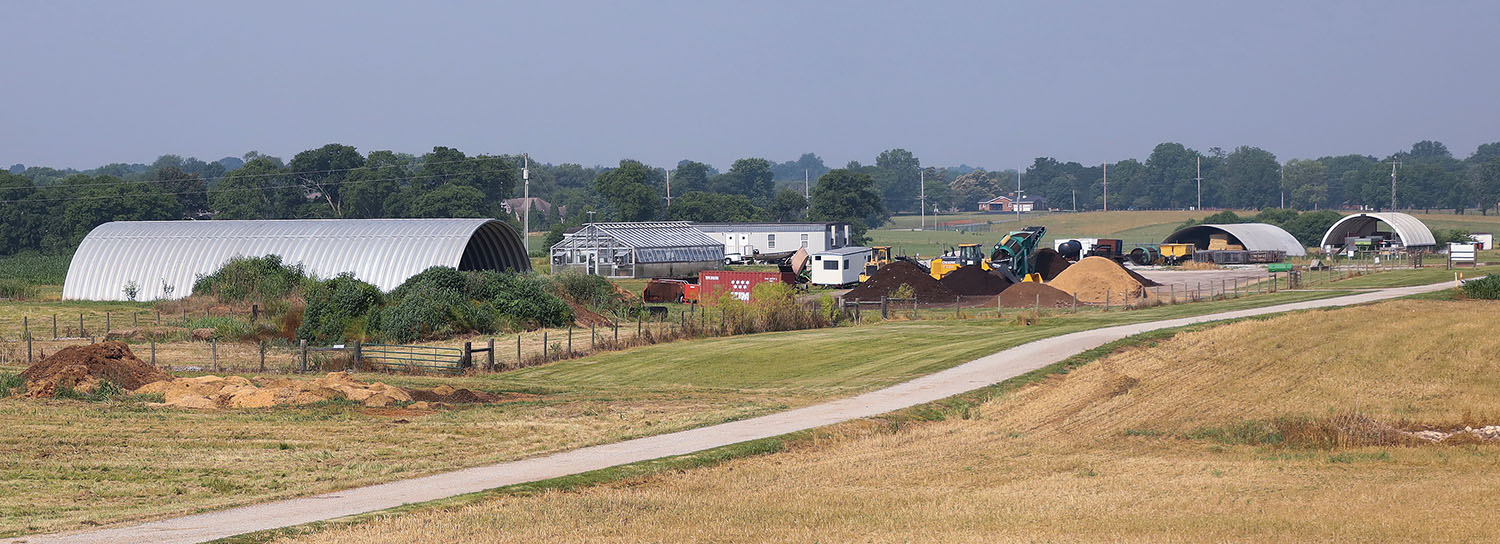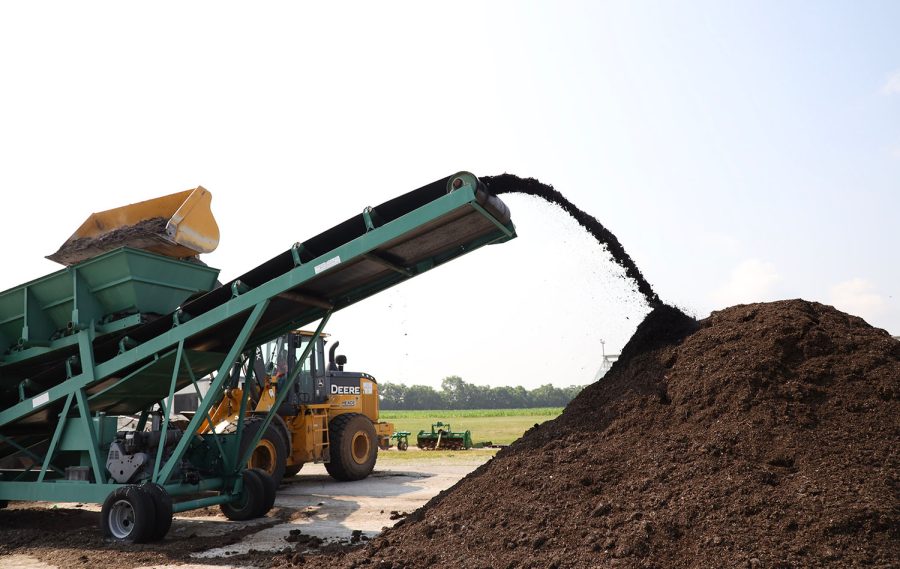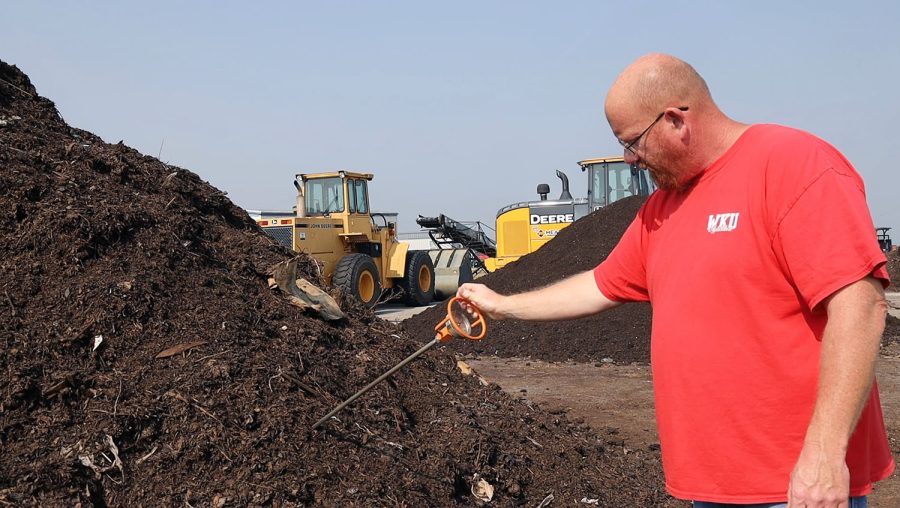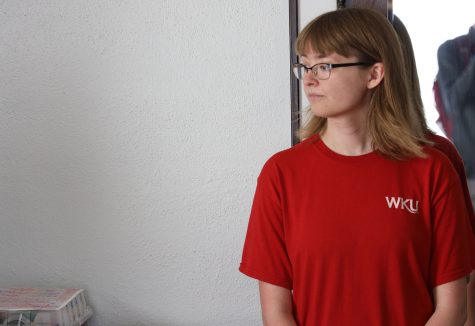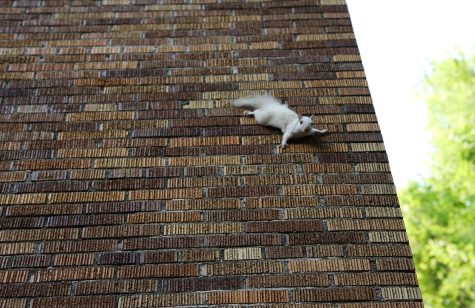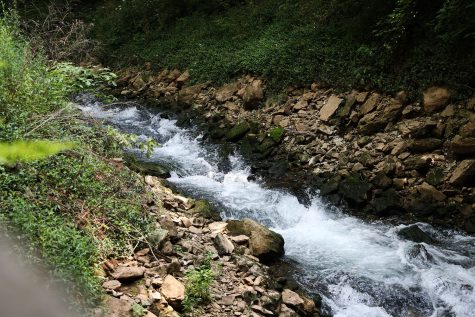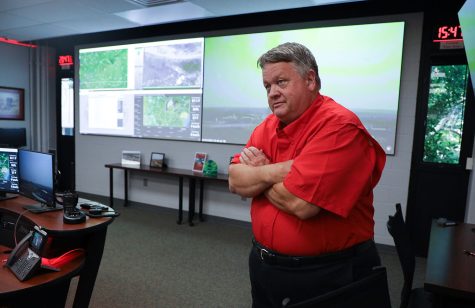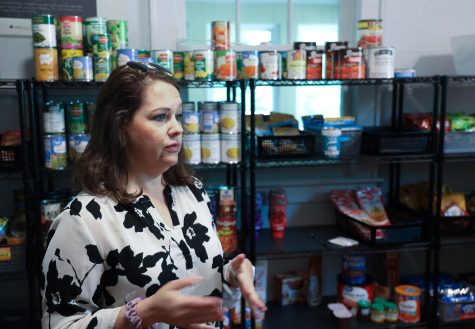Collecting campus food waste begins production of compost
David Quintanilla/ Bowling Green High School
Joey Reynolds, an agriculture technician at the WKU Farm, uses a recuperator to separate trash from the nutritious soil.
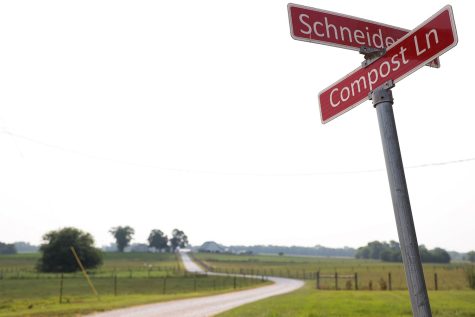
Turning onto Compost Lane, the sounds of the gravel road and the scent of waste welcomes you to the blacktop area that houses WKU Compost. Immediately your eyes gravitate to the different colored piles of sawdust, leaves and food scraps.
WKU’s composting process starts on campus in the dining halls and restaurants. These places collect both the pre- and post-consumer food waste, including fruit peels, rinds and vegetable stems. Next, volunteers pick up the waste and take it out to the WKU Farm.
Once reaching the farm it is then mixed with sawdust. Sawdust is added to the waste for its high concentration of carbon, which is useful to eat away the nitrogen. This mixture is then combined 50/50 with leaves from Bowling Green’s residential leaf pick-up each autumn. After the combination goes through a device called the recuperator, a screener that separates the new material from the trash that can’t be in the soil.
The final step is to check if the soil is nutritious, said Joey Reynolds, the WKU agricultural technician who works with the program. This is done by sticking a long thermometer into the soil. It’s important that the soil is between 130 and 160 degrees Fahrenheit so a bacteria called thermophilic can be found.
This bacteria is the most efficient at breaking down the compost material. If the temperature is lower, there is oxygen missing, which is poor for plant growth. If the temperature is too high, a different type of bacteria grows which isn’t as efficient at eating the carbon away and could lead to a higher chance that the pile spontaneously combusts.
“It’s a really neat process,” Reynolds said. He not only manages all the process but also handles the sales and delivery for the compost.
The compost sells both mulch and compost in the fall and spring seasons. This past spring, all the compost that the operation produced sold out in just over a month, raising over $14,000.
“Seventy-five percent of the profits go to a scholarship fund for Ag department students, and the other 25 percent goes back to the city,” Reynolds said. That 25 percent specifically goes toward operating costs such as fuel for both leaf trucks and tractors and labor costs.
“We couldn’t have the product we have without state grants,” Reynolds stressed.
WKU received two grants from the Kentucky Energy and Environmental Cabinet. In 2017 it received $100,000 to expand the composting program and received $250,000 in 2019 for the same purpose. With the grants they purchased new tractors and blacktopped more surfaces. Both have been crucial to the development of the compost program.
Not only is this project giving back to the community, it is also cleaning it. By collecting food waste and creating compost, it is put back into the ground to grow more food. This makes a cycle that supports both a sustainable lifestyle and combats excessive landfill.
